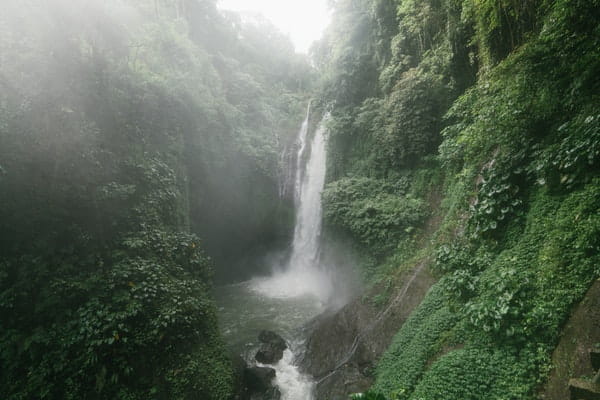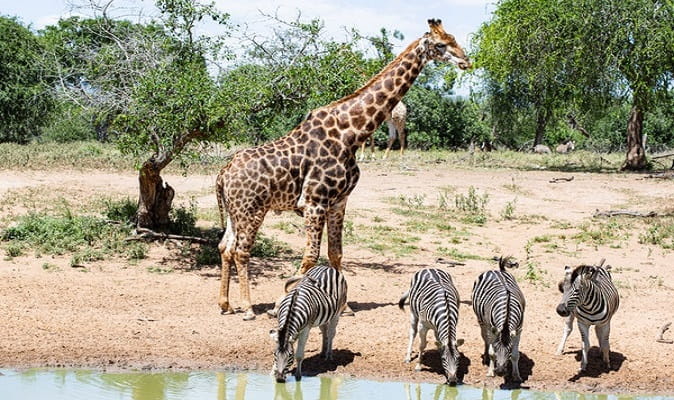Ecotourism is defined as tourism of exotic, endangered environments usually to support conservation efforts and research developments.
Usually, the ecosystems of these places have had little to no interaction with human society. This provides scientists with valuable biological information and tourists with breathtaking experiences.
However, some critics of ecotourism consider it to be unethical and more detrimental to these natural environments than regular tourism and advise against disturbing these ecosystems.
Before you book your next adventure, check out the following pros and cons to understand ecotourism's full impact on the environment and local communities.
PROS of Ecotourism
Valuable Biological Education
Ecotourism provides the opportunity for not only environmentalists and biologists, but also tourists to learn more about the ecosystems and the biology and geology of a specific location.
Understanding the components of an ecosystem can lead to a better appreciation for different species and natural formations. Ecotourism also provides an impactful firsthand experience about sustainable living and eco-friendly practices and the impacts of conservation in nature.
Local Economic Support
In some cases, ecotourism provides more sustainable economic growth for countries than other forms of tourism.
Places like Ecuador, Nepal, Madagascar, and Costa Rica rely on tourists to support their economies. While regular travel and tourism usually return only about 20% of revenue back to local communities, ecotourism can return as much as 95%.
Ecotourism isn’t only about conserving environments; it’s also about sustaining communities. For example, Madagascar’s government has started promoting its tourism as an economic strategy to shrink its 81% poverty rate. Although it’s still in the idea phase, it’s possible that ecotourism could be the answer to their unemployment crisis.
Positive Impact on Community Culture
Not only can ecotourism create jobs for locals, but it can also promote and preserve traditional practices. Locally grown food and crafted goods create a direct economic and cultural connection between the tourist and citizen.
Ecotourism promotes these cultural traditions rather than altering native customs to fit specific international norms. Some consider ecotourism to be a means to end cultural ignorance, stereotyping, and fear in the world through its ability to educate travelers.
Increased Environmental Awareness
Most ecotourism programs include educational components about environment preservation. The tourists can help spread environmental awareness by taking the information they’ve learned and apply it to their daily lives.
Financial Benefits for Conservation
When people spend money on ecotourism, some of the investment goes toward conservation efforts like reforestation and endangered species repopulation projects. Essentially, the more money spent on ecotourism, the easier it will be to finance conservation projects.
Support for Natural Resource Management
In a global economy where many businesses exploit natural resources for personal gain, ecotourism introduces the idea of natural resource management. Rather than depleting resources to meet high demand, ecotourism suggests adapting a conscientious mindset to extract natural resources in the most efficient and sustainable way possible.

CONS of Ecotourism
Threat to Indigenous Traditions
The growing number of tourists in many regions puts a strain on the freedom of cultural expression for many native groups. Natives are seen as a backdrop or prop during tour guides, objectifying cultural groups and encouraging stereotyping.
Possible Solutions?
- Know how the ecotourism organization you’re interested in impacts local culture. Does it promote or demote native customs? Does it educate or objectify? Choose a program that works with native groups to educate others on their customs.
- Don’t put the burden of education solely on native peoples. Do your own research about local indigenous cultures before you book your trip.
Relocation of Locals
Sometimes local groups of people are displaced from their homes in order to make way for hotels, ecotourism expansions, and natural resource excavations. For example, in East Africa, about 70% of all national parks and game reserves are occupying land that was illegally taken away from a group of people called the Maasai.
What’s worse is that the Maasai did not receive any financial compensation for their loss. Not to mention, the new employment opportunities exclusively benefited educated professionals rather than the native people of East Africa.
Possible Solutions?
- Organizations have formed to help the Maasai reclaim legal and financial rights to their ancestral lands. Become aware of similar situations like this to better understand the extent of an organization’s impact on the local people.
- Research an ecotourism organization’s history to learn more about their intentions and goals. If there are possible discrepancies, like with the Maasai, use your discretion to discern whether or not the organization is ethical.
Ecosystem Degradation
Although ecotourism is specifically designed to counter environmental degradation, it can sometimes be its cause. Ecotourism specifically takes tourists to ecosystems relatively untouched by humans.
Introducing a foreign element to these delicate systems can disrupt in a number of ways:
- Human presence can scare off prey and disrupt hunting patterns for predators.
- An increased number of travelers can lead to soil erosion and habitat loss.
- The higher demand for resources like food and water for travelers creates stress on the environment in order to accommodate more people.
Possible Solutions?
- Obey the regulations of the ecotourism organization exactly.
- Research the local wildlife in order to know all possible sustainability threats to reduce the negative impacts of your excursions.
- Refrain from overeating or wasting water whenever possible. Only take what you need.
Impact of Travel on the Environment
In order to visit some of these exotic places, you have to travel long distances. Planes generate a huge amount of global pollution which can indirectly affect the local ecosystems of your travel destination.
Cars and boats used for local transportation could have more localized negative effects, which can also lead to environmental degradation.
Read more about how cars, trucks, and busses negatively impact the environment.
Possible Solutions?
- Consider taking a nonstop flight. Although this might be more expensive, it uses less fuel than regular flight plans.
- Walk or take public transportation while traveling in a country. Try renting non-motorized boats or vehicles if the need arises.
- In some places, guided tours are offered via horses, camels, elephants, or other native animals rather than by Jeep or bus. Not only is this an incredible experience to witness amazing wildlife, but it also reduces the impact of your carbon footprint.
Integrity of Ecotourism Organizations
Ecotourism grows in global demand by about 25% each year. Many organizations are jumping on this trend, claiming their parks and programs are “ecotouristic” despite their negligence to adhere to eco-friendly policies.
Unfortunately, ecotourism has turned into a marketing ploy to entice tourists to spend their money on the organization's services.
Possible Solutions?
- Research the organization you’re interested in and make sure they adhere to the philosophy of the 4C’s. Continue reading for more details.
How Can You Be an Eco-Tourist?
So, is ecotourism worth it? In reality, it all boils down to who you’re working through, where you go, how you get there, and what you do while traveling to reduce your negative impacts on the environment.
If you’re looking to green-up your travel habits, follow these practical tips:
- Choose Genuine Ecotourism Programs: Thoroughly research your organization to make sure it meets all the expectations of the 4C’s philosophy. If an organization fails to uphold one or more of these principles, it’s probably not a genuine ecotourism program.
What Are the 4C's of Ecotourism?
- Conservation: Is the organization safeguarding the biodiversity and integrity of ecosystems?
- Community: Is the organization supporting the basic rights of locals while enhancing the well-being of communities?
- Culture: Is the organization nurturing the education of cultures to its tourists? Is it a positive experience that promotes respect and understanding?
- Commerce: Is the organization building the local economy?
- Stay at Green Lodging Services: Stay at hotels that implement green policies, like providing eco-friendly soap or encouraging their guests to reuse towels.
- Reduce Your Carbon Footprint: If you can book a nonstop flight, you should do it. Also, consider taking public transportation over renting a car. Always try to travel on foot or with non-motorized vehicles when possible.
- Recycle Always: If there are recycle services available, make an effort to implement that into your waste reduction strategy.
- Bring Eco-Friendly Toiletries: Chemicals found in common toiletry items might be hazardous to the exotic environment, depending on the country’s waste and water treatment. Purchase eco-friendly shampoos, soaps, deodorants, and cosmetics to help eliminate this potential problem.
- Reuse Anything You Can: Towels, water jugs, plastic silverware—anything that can be reused should not be thrown away.
- Adhere to Regulations: If you’re on a trail that says “Do not leave marked path,” stay on the trail. If a town has a no littering policy, don’t litter. In other words, follow the established environmentally–conscious rules.
- Buy Local: Buying locally–grown food reduces the need to import goods, thus creating less travel waste with boats and other modes of shipment while pouring money back into the local community.
Be sure to explore these 28 eco-friendly travel blogs before you set sail on your next green adventure!



